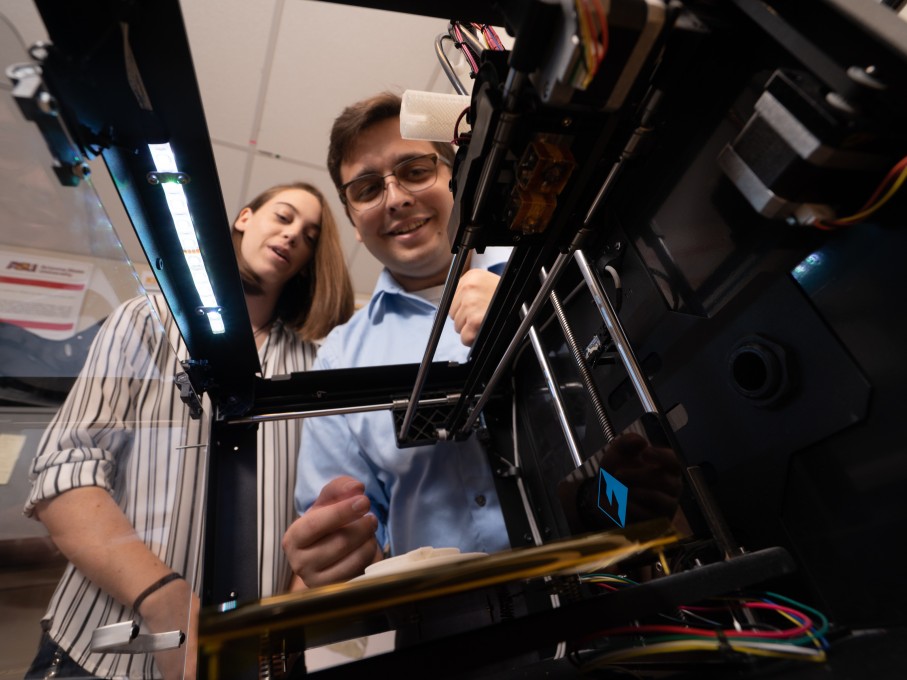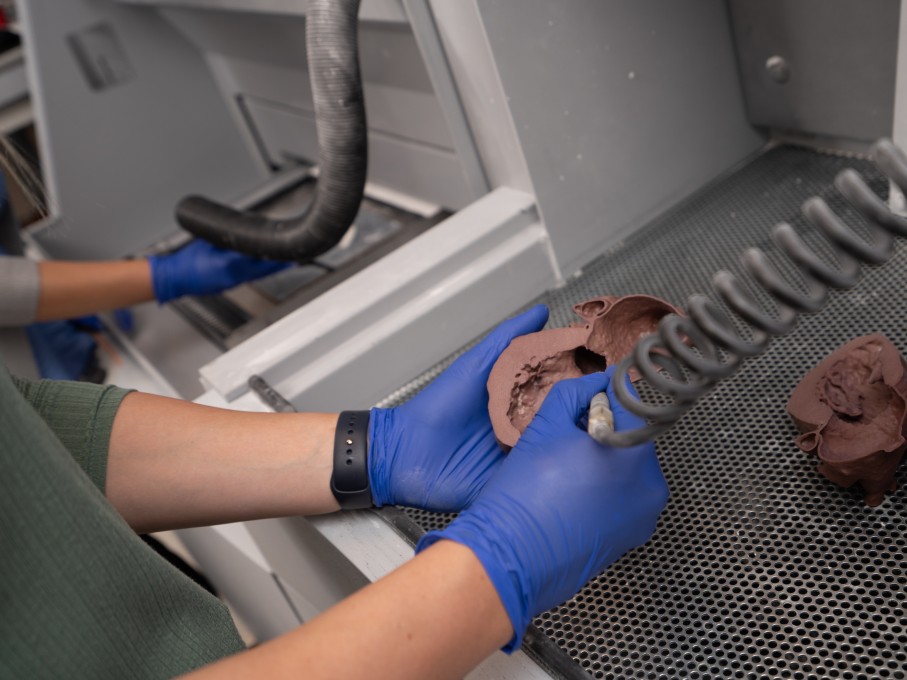The mission of the Center for Heart Care 4D Cardiology Visualization and Analytics (CAVA) Laboratory is to advance pediatric medicine through:
- The development of novel tools and methods to guide clinical decision making
- The quantification of pathological advancement with the goal to understand, predict and then identify clinical milestones
The lab achieves its mission by bringing in engineering, computer science and machine learning concepts to both clinical problems and to clinical research questions in pediatric medicine. The technical specializations of the lab are in clinical signal processing, image processing and anatomical shape analysis. Although the focuses of the lab are in the areas of pediatric cardiology and related areas within radiology, the technical and engineering skills of the lab do not isolate it specifically to these focus areas.
Primary Research Areas
- Heart Transplant: Developed a virtual fit assessment tool to help improve donor-to-recipient organ-size matching. This work was the body of the Primary Investigator’s PhD dissertation and is now pushing how physicians think about donor size matches.
- Advanced Heart Failure: Developing novel tools to quantify and evaluate heart failure development. The project’s long-term goal is to catch clinical milestones earlier to improve the management of advancing heart failure with current standard-of-care treatment options.
- Anatomical Shape Analysis: Developing tools to analyze anatomy. The goals of this work are to compare healthy controls to disease populations in novel ways and predict the success of device placement based on patient-specific anatomy.
- Virtual Reality: Developing virtual reality software that is moving engineering tools to user-friendly software for the physician.
- The merits of this improvement project are to help physicians during both surgical planning and the educating process for patient families to make informed decisions on their child’s (or their own) treatment.
- This work is in collaboration with the Sonoran Visualization Laboratory under the direction of Chris Bryan, PhD, from Arizona State University’s (ASU) School of Computing, Informatics and Decision Systems Engineering. This project is supported by a 2019 Phoenix Children's Foundation’s Leadership Circle grant and helps to support an ASU PhD student.


Born From 3D
Our Cardiac 3D Printing Program began in 2012. It is from the successes of that program that the 4D CAVA Lab was developed to bring a stronger emphasis on computer vision and analytical research to the Center for Heart Care. It is these same types of printed computer models that can also be used in the shape analysis work of the 4D CAVA Lab.
Students and Student Support
The lab recognizes the importance of training the next generation of researchers and is committed to providing experiences in a clinical research lab for students at the undergraduate, graduate and medical school levels. However, many times these students lack funding support. These experiences include the creation and carrying out of their own project designs in the 4D CAVA Lab. Students get hands-on mentorship from clinical and research professionals who collaborate with our lab.
Unfortunately, out of necessity, these students will hold unrelated jobs and their research and technical skill development can suffer. A goal of the 4D CAVA Lab is to create a funding source to provide modest research stipends for deserving students to assist in keeping them engaged. The lab is comprised of engineering, biology and medical students from ASU and the University of Arizona.
By donating, you can help support students who do not otherwise have grant backing to support:
- Student research time through a student stipend,
- Buying research coordinator time specifically dedicated to helping facilitate paperwork needed to start, monitor and close out documentation needed for these student-led human research projects,
- Helping purchase needed materials not readily available in our lab for their student-developed research and capstone projects.
